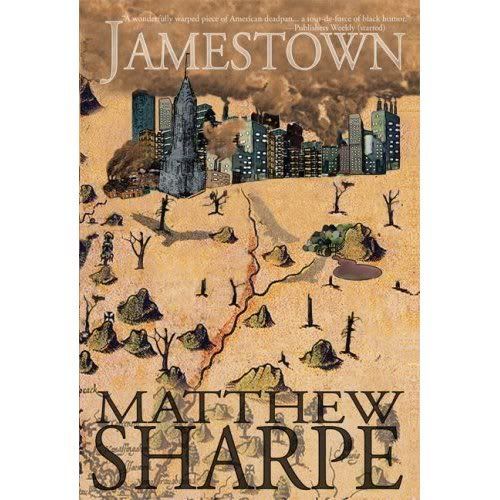Past, present, and future.

I'm a little overwhelmed with media right now. Magazines are stacking up under the bed. I have my eye on a couple of cds that are coming out tomorrow (yay, Rilo Kiley and Travis Morrison!), which wouldn't really be a problem except that I now have around 30 brand-new, shining mix cds awesomely awaiting my discerning ear (so far, so good). Plus there was that 90 minutes of life I wasted on a certain Disney property that will remain nameless (until tomorrow, stay tuned).
When so many things start demanding my attention, usually real books get pushed to the back burner. I know-it's a bad habit. But if I don't read magazines right away, another one will come in a month (if I'm lucky) or a week (if I'm not). With real books, there's no deadline for finishing, so I like to take my time. Plus, I don't have a train commute anymore, so reading time has been diminished.
Jamestown managed to be the exception. It busted through all the pop-cultural noise and demanded that I make reading it a priority. How? By being awesome.
Let me say right now that this book is total fiction, and not about Indians and settlers in the traditional sense. It take place in a post-annihilation future or some kind of alternate present, when the Chrysler building comes crashing to the ground, the city is pretty much out of food and fuel, and Brooklyn is at war with Manhattan. The "Manhattan Company" sends representatives down I-95 to trade with natives and learn survival techniques. There are characters named John Rolfe, John Ratcliffe, Jack Smith, and Pocahontas, but that's where the similarities with history end. It's a little rough to read; his characters are pretty much dirty and half-dead the entire time.
The author, Matthew Sharpe, is hilarious in a dark sort of way. He teaches at Wesleyan, and now I'm sad that I never got to take a class with him. I enjoyed his novel more than Edinburgh, although the two are almost impossible to compare, and I probably like Jamestown more for personal preferences. Aside from being morbidly funny, Matthew Sharpe hones these really unsual voices for his characters. New York Magazine said that Pocahontas "seems to speak Ebonics, Shakespeare, Valley Girl, and Text-Message all in a single sentence." Afterwards, he replied, "She also sounds like a sophomore English major at Wesleyan University." Now I'm totally afraid I sound like her, and I can see similarities in this journal, which is quite frightening.
Definitely one worth checking out, if you're into bleak and bizarre versions of the past set in the future.